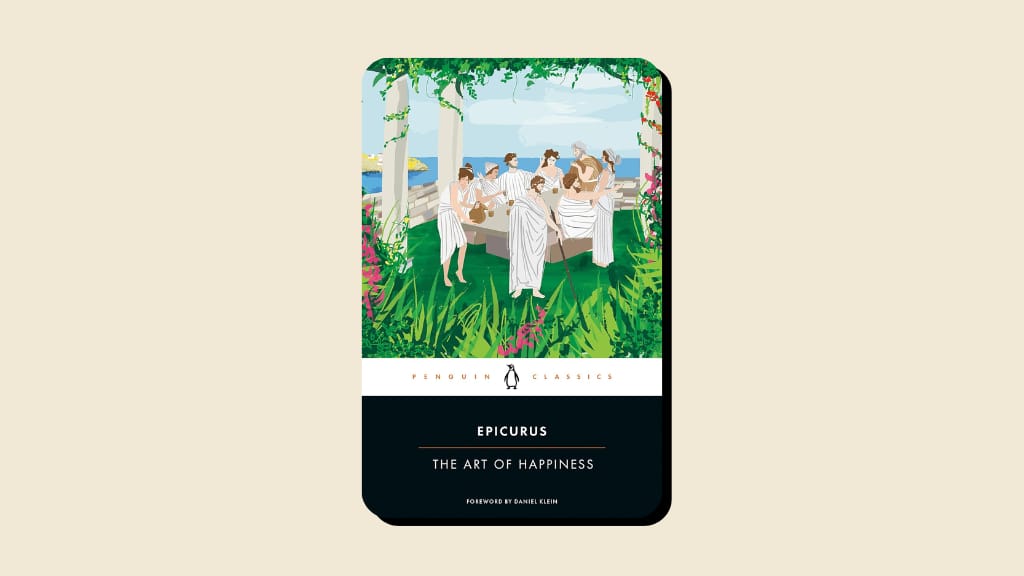- Book Notes
- Posts
- The Art of Happiness by Epicurus
The Art of Happiness by Epicurus


Overview:
The main message of The Art of Happiness is that true happiness comes from simple pleasures, cultivating friendships, and reducing unnecessary desires.
The book was written around 300 BCE.
Q&A: "The Art of Happiness"
Q: I hear you’ve read The Art of Happiness. What’s the core philosophy of Epicurus?
A: Epicurus teaches that happiness isn’t about luxury or indulgence—it’s about simplicity. He believed that the key to a good life lies in satisfying our natural, basic desires (like food, shelter, and companionship) while avoiding unnecessary cravings that lead to stress and unhappiness.
Q: Wait, isn’t Epicurus associated with indulgence and hedonism?
A: That’s a common misunderstanding. Epicurus did value pleasure, but he defined it as the absence of pain and disturbance. He advocated for a balanced life—avoiding excess, embracing moderation, and finding joy in simple things like good food, meaningful conversations, and quiet reflection.
Q: How did Epicurus view wealth or material possessions?
A: He saw wealth as unnecessary for happiness. Epicurus believed that pursuing wealth often creates more anxiety than satisfaction. Instead, he emphasized gratitude for what you have and finding contentment in things that money can’t buy, like friendship and inner peace.
Q: What role did relationships play in his philosophy?
A: Friendship was central to his idea of happiness. Epicurus considered strong, supportive relationships one of life’s greatest joys. He even suggested that living with friends in a shared community was an ideal way to foster happiness and reduce loneliness.
Q: Did he have advice on how to handle fear or anxiety?
A: Yes, especially regarding the fear of death and the gods. Epicurus argued that death is nothing to fear because it’s simply the end of sensation—you won’t feel pain or regret once you’re gone. As for the gods, he believed they didn’t interfere in human affairs, so worrying about divine punishment was pointless.
Q: How can we apply Epicurus’ philosophy today?
A: Start by simplifying your life. Reflect on what truly brings you joy and focus on those things—whether it’s spending time with loved ones, enjoying nature, or practicing mindfulness. Let go of unnecessary desires that lead to stress, like chasing status or material possessions.
Reflection Thought:
What simple pleasures or meaningful connections in your life could you prioritize more to cultivate happiness?
Community |
1️⃣ The Innovators | 2️⃣ Onward | 3️⃣ Good Strategy Bad Strategy |
Which of the above three books interests you the most? |
Quote for you:
“Do not spoil what you have by desiring what you have not; remember that what you now have was once among the things you only hoped for.”
― Epicurus

Thanks for reading, hope you enjoyed this post!